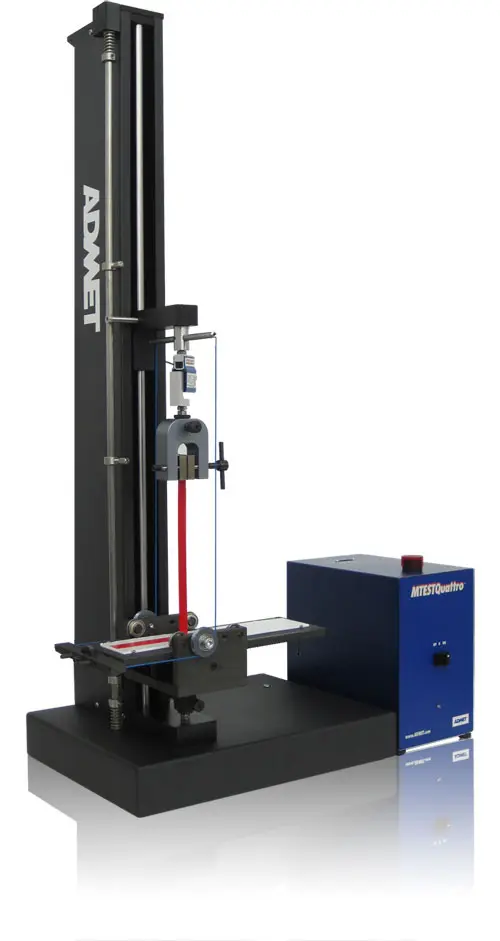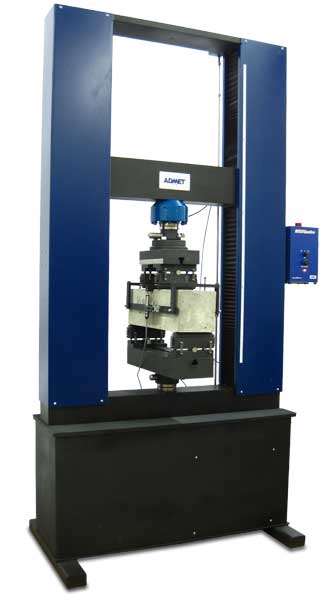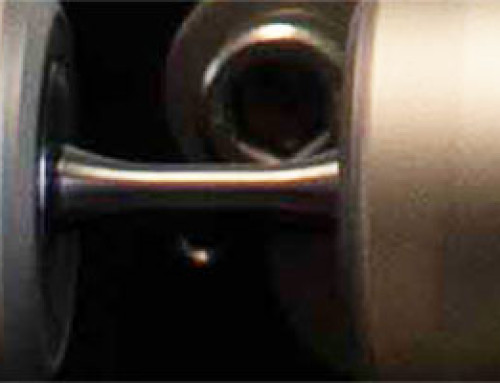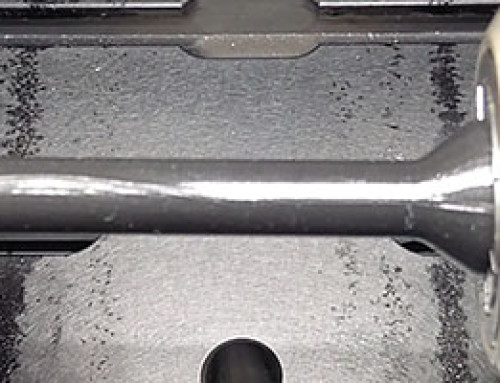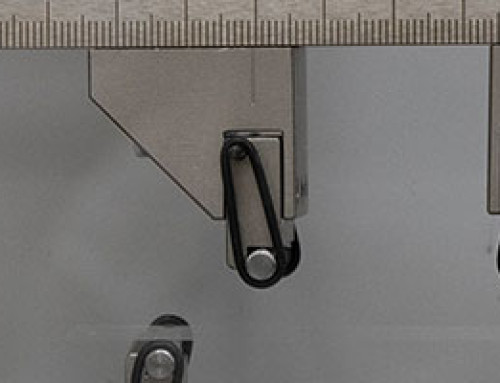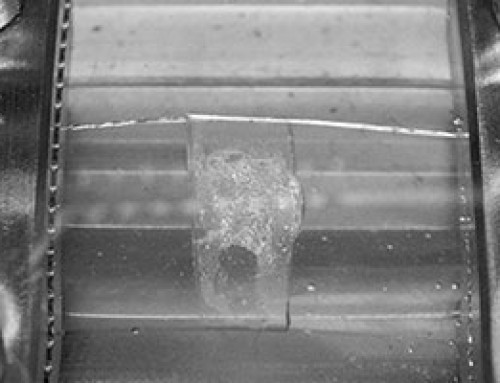At ADMET, we have over 25 years of experience helping companies in a diverse set of industries solve their materials testing problems. Below you’ll find three case studies which illustrate how our knowledge and expertise can help you tackle your testing challenges.
Case Study #1 – Elastomers
An elastomers manufacturer turned to ADMET for a materials testing solution that supports its distinct competitive advantage.
“We don’t just cut rubber parts. We also evaluate materials and recommend the right ones for the application,” says their Senior Application Manager and Brand Manager. “The ADMET system helps us test the properties of materials, and determine which ones are the best fit.”
The company researched materials testing systems from multiple vendors before selecting ADMET’s eXpert 7601 Universal Testing System with compression platens to measure compression force deflection per ASTM D1056. This test method compresses specimens to create a force deflection curve as well as measure the force required to compress the sample. The company uses the ADMET system to compare how well various materials maintain the seal on an electronic device. “It might take a certain amount of force to squeeze a material initially, but over time the rebound will relax,” says one member of their team. “Quality materials suited for long term sealing will keep pushing back over time, providing better sealing protection. These critical performance properties are not apparent with the naked eye; proper testing is required.”
In addition to using the ADMET system to test the performance of individual materials, the company uses it to test materials in combination or in reconfigured formats. “By changing the shape of a material we can change its mechanical properties. We might marry two or three different materials to find the best solution,” the manager continues. “The ADMET system helps us to evaluate materials and provide quantifiable results. It has helped us improve the information we provide to customers.”
While the company purchased the ADMET system to test compression force deflection, it quickly realized the system’s use for several other applications, including for adhesive peel, tensile strength, and cycling tests. “We mimic the impact on a gasket after hundreds of cycles of opening and closing of the device’s door,” he goes on. “The ADMET system allows us to build a performance profile for each material, and also helps us quantify our internal processes.”
Other materials testing systems could perform many of the same tests, but the ADMET system offered the right combination of features for the cost. “The ADMET system hit the sweet spot of price, functionality, and usability, and the interface is very simple,” the manager concluded. “The ADMET system is a very useful way for us to provide data and real, live test information to our customers.”
Case Study #2 – Biomedical Research
When the materials testing team at a major American university wanted to measure the performance of dental bone screws when engaged with human bone, it found an unexpected hurdle: its lab was not certified for cadavers. The university found a cost-effective solution in a portable bone screw testing system from ADMET.
ADMET worked with a professor who works in the biomedical materials research department at the university’s medical center. His team conducts mechanical tests on a wide variety of materials used in medical devices including metals, composites, and polymers. “We evaluate materials for all of the properties required to pass ASTM and ISO standards,” says the professor. “We conduct mechanical testing, for corrosion, structural identification, and failure analysis – a wide gamut of testing on medical device applications.”
His team worked with the university’s oral surgery department to test different dental fixation screws using test blocks, but the surgeons requested that the team conduct tests using cadavers. “We wanted to compare how the screws performed in bone foam blocks versus in cadavers,” he says. “This would be as close as we could get to a clinical study, and it would help us identify which foam blocks came the closest to modeling performance in cadavers.”
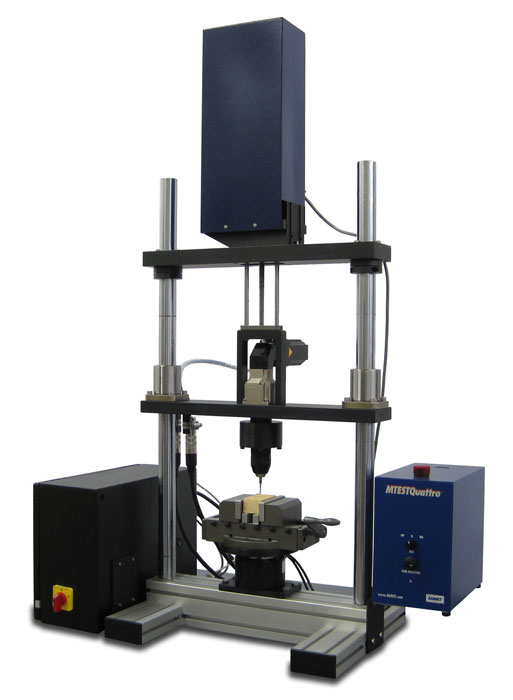
The eXpert 8602-F543 tester from ADMET is a compact, all electric solution which is much smaller and less expensive than hydraulic testing systems. “Our current testing lab is not rated for cadaver testing,” says the professor. “We were able to put the ADMET system on a cart and wheel it into the cadaver lab. We could take the testing to the cadavers rather than have to build and certify a whole new lab. The portability is amazing.”
The ADMET system required no customization to test for ASTM F543 – unlike hydraulic systems, its axial torsion frame has infinite rotation, so it can perform all four Annex tests on one frame, right off the shelf: Annex A1 to determine the torsional properties of bone screws by clamping the screw along the threads and twisting until it breaks; Annex A2 to determine the driving torque of bone screws in test blocks; Annex A3 to determine the axial pullout strength of bone screws from a test block; and Annex A4 to determine self-tapping performance, a key differentiator from other bone screw testing systems. The ADMET system has displacement and load control in both axes, which enables it to measure at what point a screw’s threads engage with the bone, and require no further downward pressure to insert.
“Everything is included to do all of the tests. Other vendors could design for that, but it wasn’t included,” says the professor. “ADMET’s out-of-the box solution was probably the biggest selling point, along with the compactness of the frame.”
The portability has given the team the ability to highlight their capabilities to other departments at the university. It brought the ADMET system to the dental school’s Research Day, and demonstrated its capabilities by testing the strength of different brands of dental floss. “With any multifaceted institution like ours, there are many people who don’t know what we do,” he concludes. “The ADMET system gave us a good way to get the word out about our capabilities.”
Case Study #3 – Concrete
The use of precast concrete tunnel segments is on the rise, and companies must constantly innovate in order to be on the short list for construction projects. One such company recognized an opportunity to expand into a new market space when it bid on a job that specified fiber-reinforced concrete segments. Its purchase of a specialized testing system from ADMET enabled it to not only win the job, but to launch into a new market.
The company specializes in tunnel segment liners, and has provided rebar-reinforced segments for many jobs. But fiber-reinforced concrete offers a number of advantages over rebar reinforced concrete, including better crack resistance, ductility, energy absorption, impact resistance, and residual strength. It also can significantly lower materials and labor costs, making it an increasingly popular choice. “We had never used fiber in our mix – that was really new for us,” says the company’s Quality Assurance Manager. “Our concrete mix had to be approved before we could get the job, which meant finding a lab that could run the tests.”
ASTM C1609 outlines procedures for testing the bend strength of fiber-reinforced concrete beams, and is one of the most difficult concrete tests to perform. C1609 requires a mechanical or electro-mechanical testing machine equipped with the appropriate bend fixture, two displacement transducers, and software capable of controlling the test and recording/analyzing the data. The test machine must operate in compression at very slow test speeds under closed loop deflection rate control to test flexural performance, and must run at specified net deflection rates as measured at the mid-span point of the beam. Few labs have the machinery in place to perform C1609 – while the company found a facility where they could send its samples for testing, they were frustrated with the cost and the time required.
“These beams weigh thousands of pounds, which means a lot of money in shipping,” says the QA Manager. “The lab charges for each test, and we need to test a lot of beams.” But even more frustrating than the cost was the slowdown in production while it waited for results so that it could fine-tune its mix. “We had to wait up to 30 days to get our test results,” he says. “It just made more sense for us to have a machine here so we could do our own tests.”
The company researched several test equipment manufacturers before choosing the eXpert 2655 150kN Universal Tester from ADMET. This electro-mechanical tester includes a rectangular jig that surrounds the beam and is mounted on the beam’s neutral axis. Two displacement transducers, one on each side of the beam, are mounted mid-span to measure beam deflection, ensuring accurate measurement and minimizing errors due to concrete specimen twisting or seating in the supports. The ADMET system offers the data analysis required by ASTM C1609, including first peak strength, ultimate strength, residual strength, toughness, and stress versus net deflection curve.
To test the accuracy of the ADMET system, the company made 12 identical beams, and sent six to the external testing lab and kept six for testing in house. “We were dead on,” says the QA Manager. “The ADMET system performed perfectly.”
In addition to saving money, the company is able to make iterative changes to make a better product. “We have much more insight into the way that steel fiber concrete is performing,” he continues. “We can break six beams in one day in house rather than three in a week using the lab, so we have more data, and we are more knowledgeable about our product.”
The turnaround time has been slashed, often in half, enabling the company to adjust its mix. “The ADMET system gives us the freedom to do the testing when we want, and as fast as we want,” he says. “We’re not dependent on someone else for results.”
The ADMET system has been a game-changer for the company. “This machine enabled us to move into this new market space,” the manager concludes. “The ADMET system was a good choice for us.”
If you’re facing some materials testing challenges, contact us today! Our Account Directors will diagnose your testing needs and recommend a system which fits best with your goals. Click here to fill out our Sales Inquiry form!


